Published on
- 2 min read
How to avoid mistakes in benchmarks
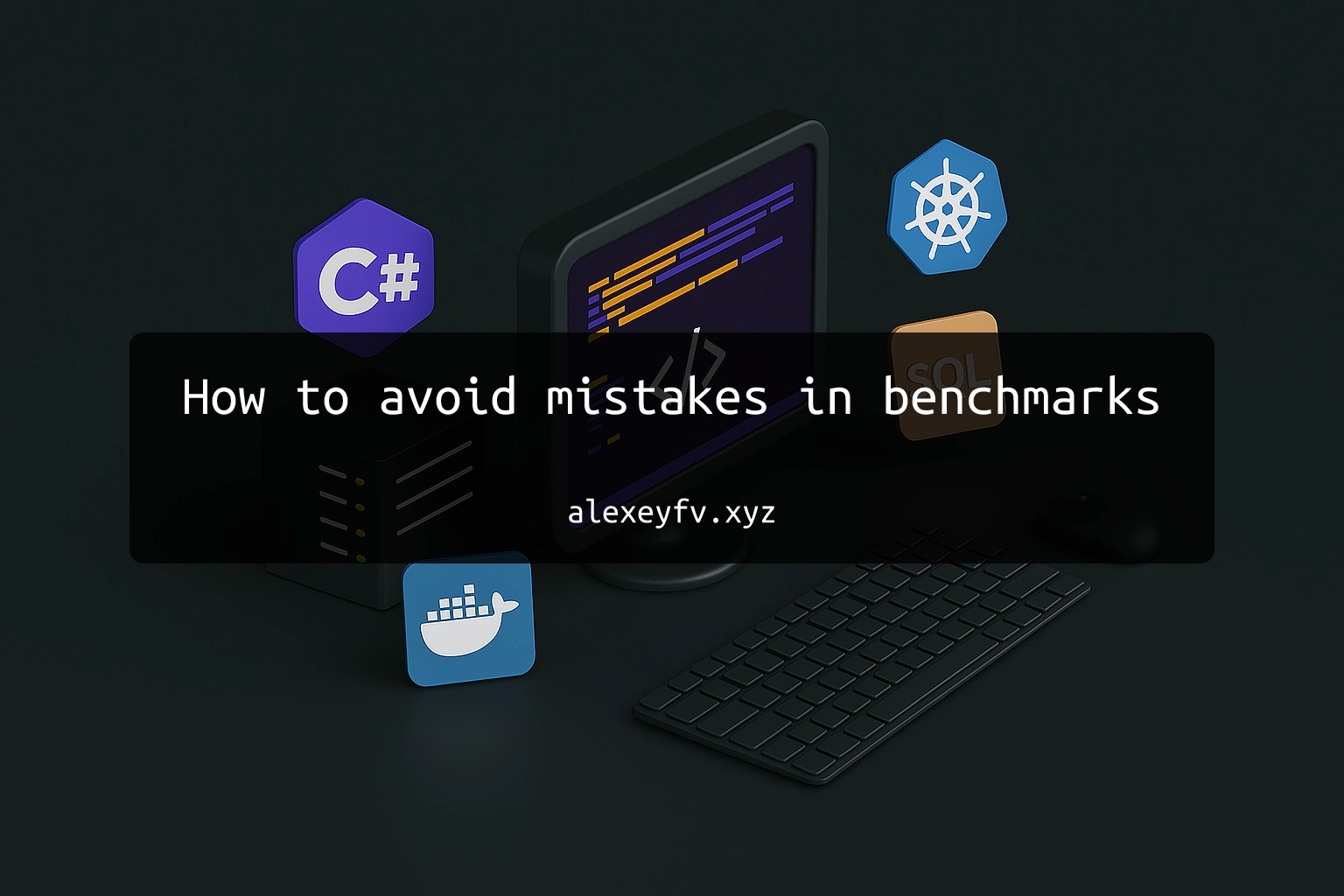
I once saw a post on LinkedIn with a clickbait title: ”.NET 9 is slower than .NET 8”. A strong claim. Of course, I had to verify it — I’m a big fan of benchmarking myself. Let’s skip straight to what’s wrong with the benchmark.
❌ Methods don’t return a result
Modern compilers are smart. They can detect when code doesn’t affect the program and just remove it. This optimization is called dead-code elimination (DCE). In this case, the DoSomeThing method essentially does nothing, so the compiler removes it in the For method. But in ForEach_Linq, it can’t do that because a delegate is created. So we end up comparing two methods with different behavior (see Figure 2).
✅ Always return something from your methods
The fixed version might look like this. We don’t care what the sum variable holds. The key is that using it prevents DCE and doesn’t significantly affect benchmark results.
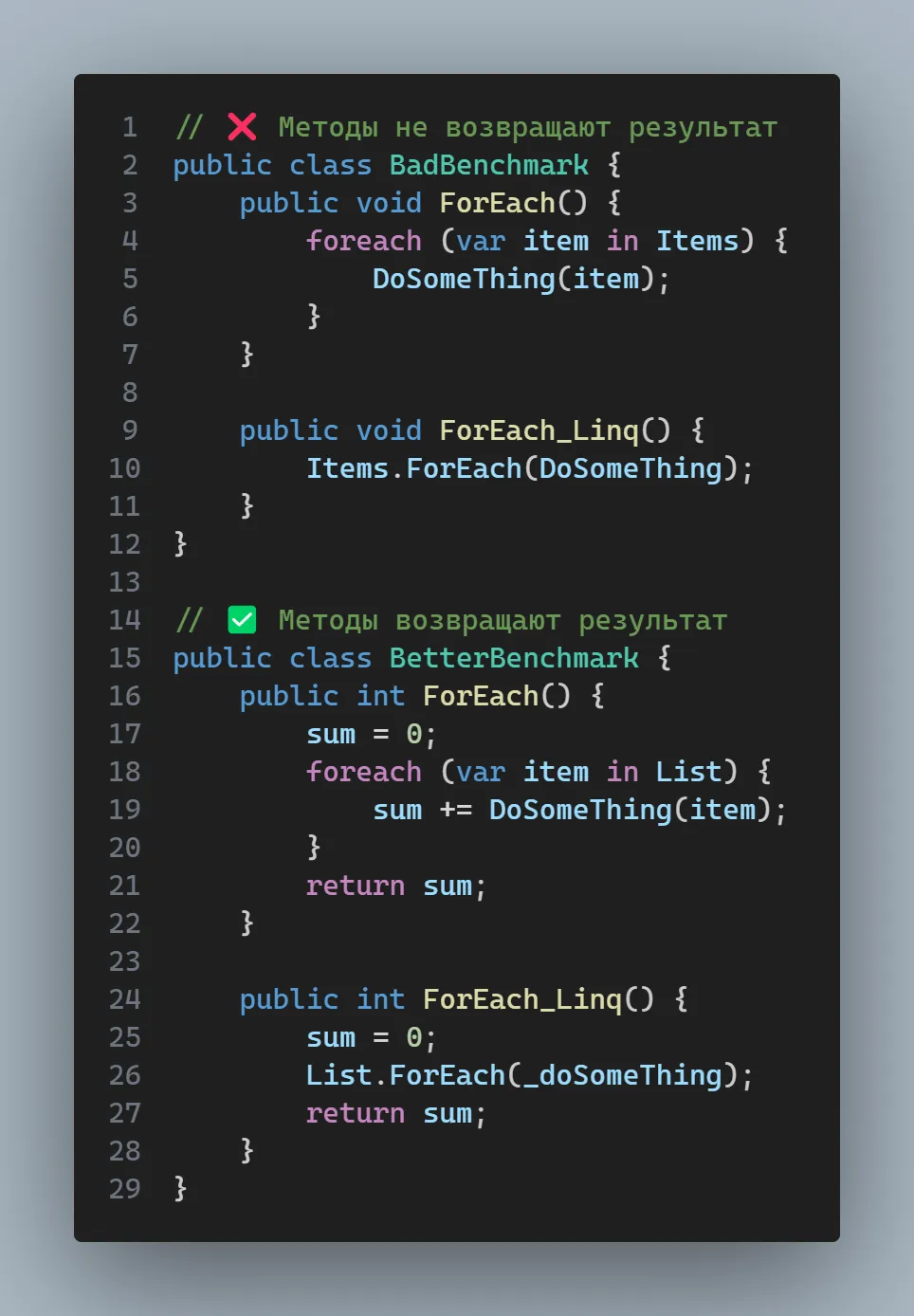
Example of dead-code elimination in benchmark methods
❌ Blindly comparing foreach
As we know, foreach is designed for collections that return an enumerator. But even if the collection supports an enumerator, that doesn’t mean the compiler will use it. See this example in Figure 3:
foreachover an array turns into awhileloop with an indexer.foreachover aListbecomes awhileloop withList<int>.Enumerator.foreachoverICollection<int>becomes awhileloop withIEnumerator<int>.
✅ Compare foreach performance across different types
Since foreach compiles into different code depending on the collection type, performance can vary a lot. That’s why it’s important to compare each case separately. This behavior might change in the future, though.
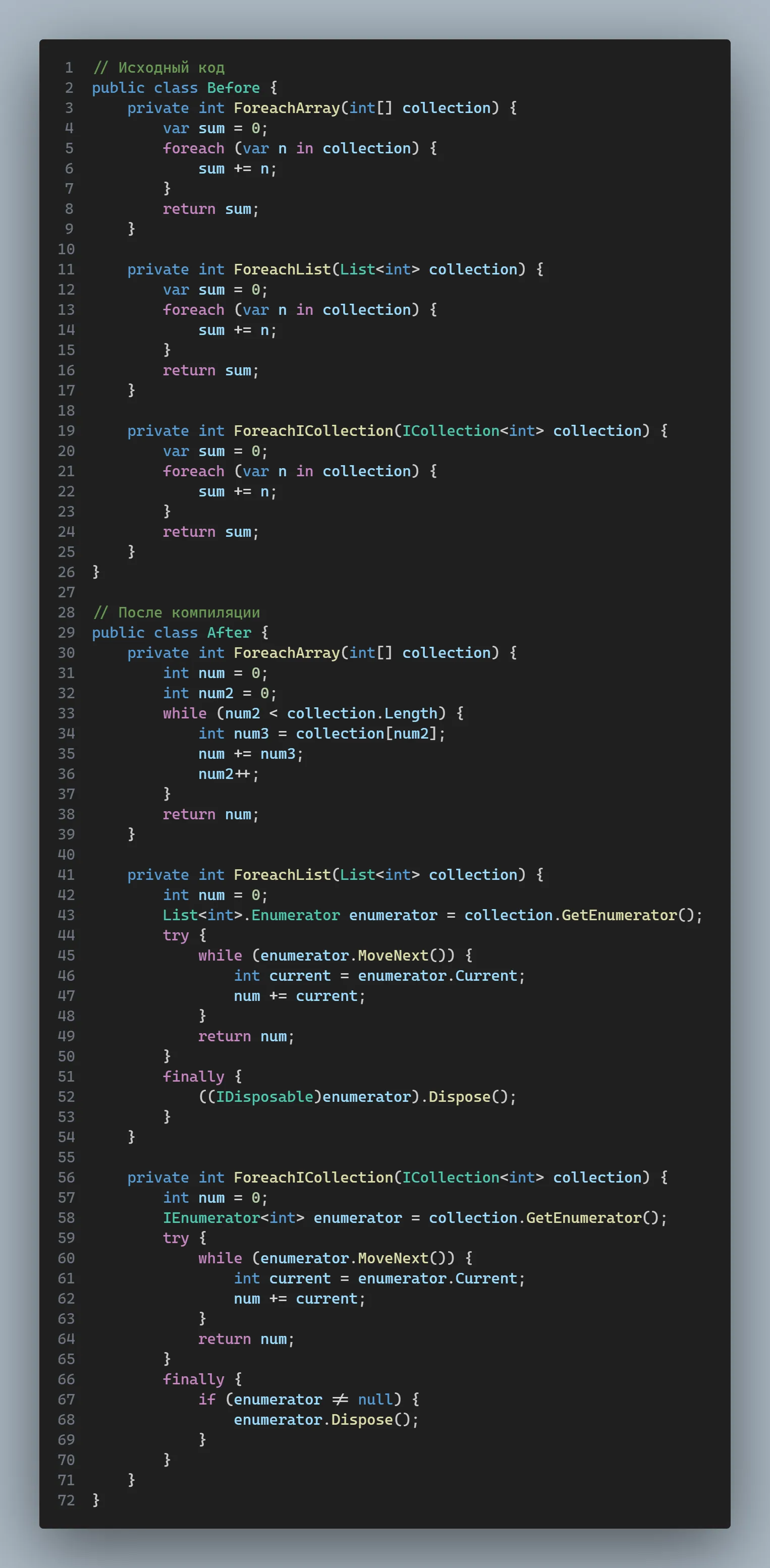
Compiler behavior when foreach is used with different collection types
❌ Passing methods as parameters
Passing a method as a parameter creates a delegate. In our example — an Action<int> (see Figure 4). A delegate is a reference type, and creating one means memory allocation, which affects benchmark results.
✅ When passing a method, pre-create the delegate
It’s better to create the delegate in the GlobalSetup method, which runs before the actual benchmarks.
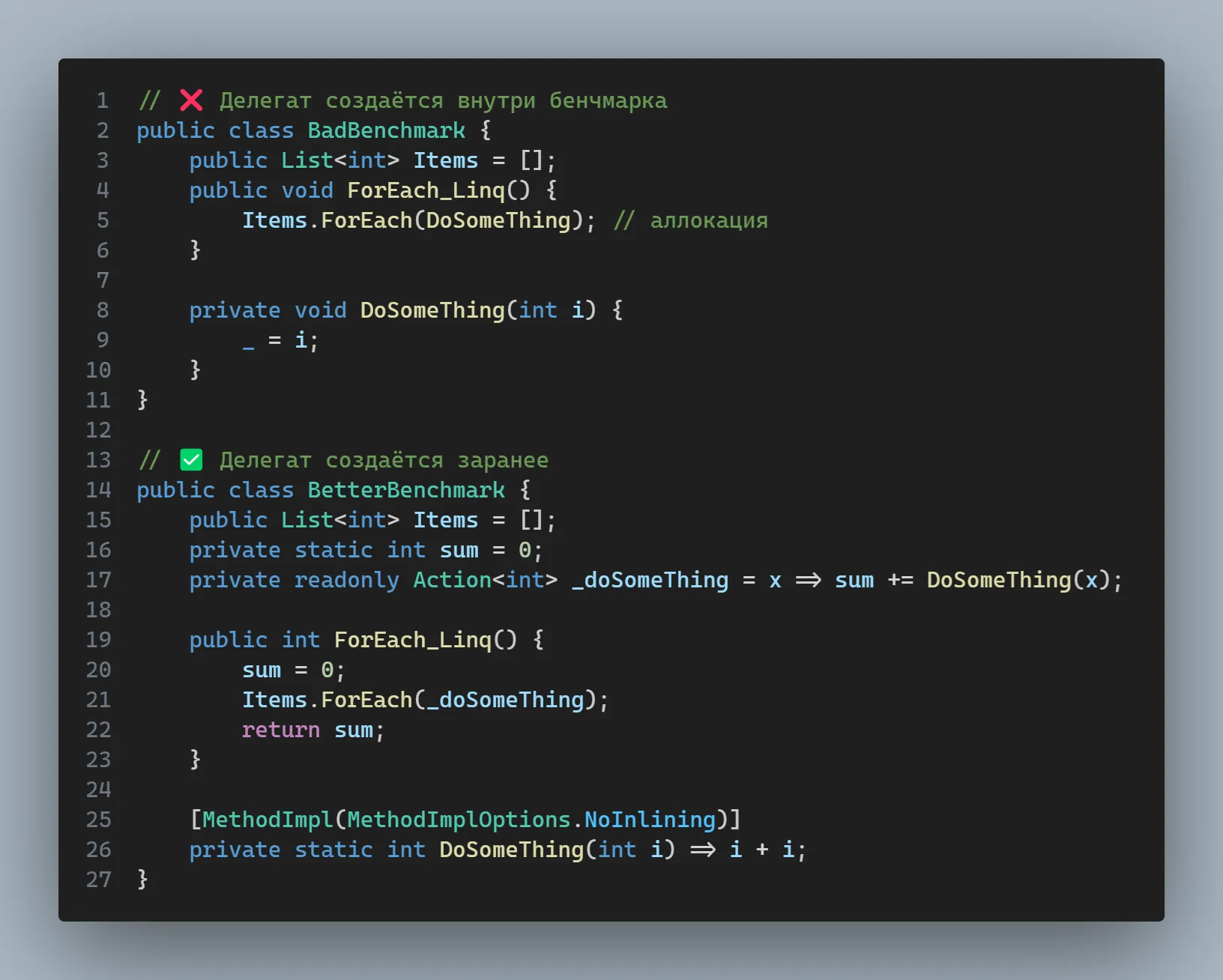
Delegate allocation when passing methods as parameters
Conclusion
Now let’s look at the results of the corrected benchmark. “Bad” refers to the original benchmark, and “Better” is after fixes.
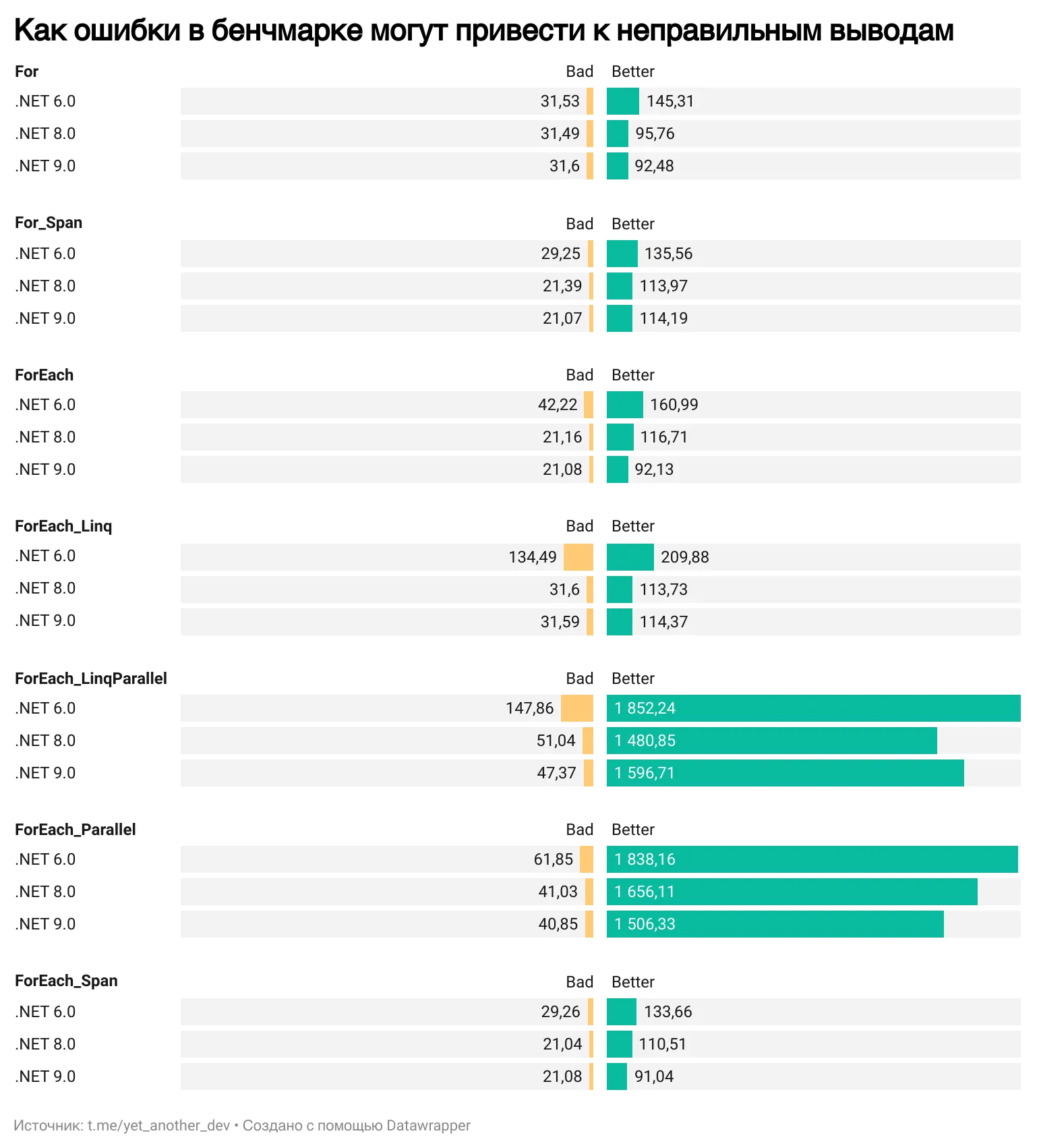
Comparison of results before and after benchmark fixes
In the Bad benchmark (run on my laptop), the ForEach_LinqParallel method was actually a bit faster on .NET 9 than .NET 8. The difference mentioned by the author was within the margin of error.
In the Better version, ForEach_LinqParallel was 90 microseconds slower on .NET 9 than on .NET 8. I would still consider that a negligible difference and wouldn’t make a big deal out of it.
Overall, results across all three versions of .NET seem more or less the same. So, I wouldn’t go so far as to say that ”.NET 9 is slower than .NET 8.”